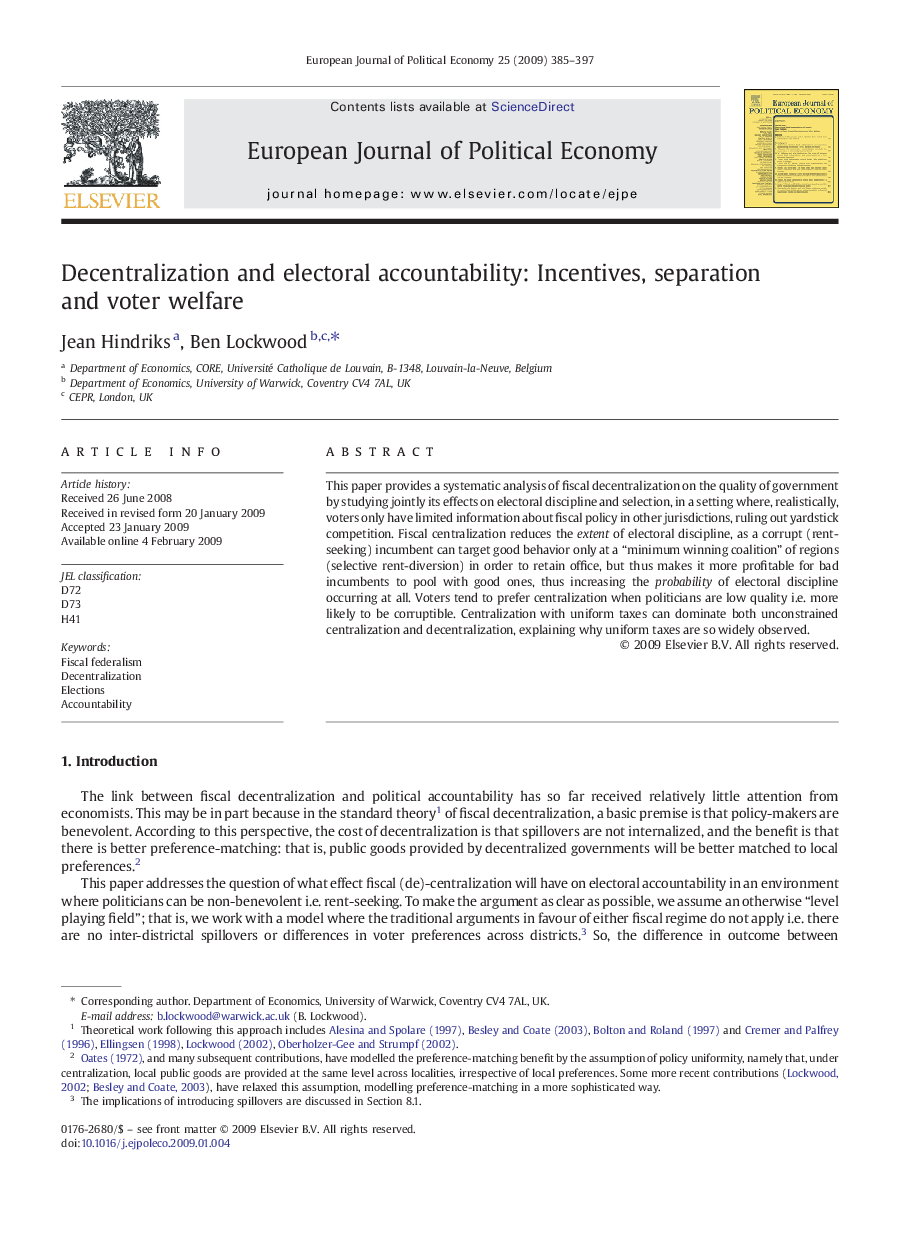| کد مقاله | کد نشریه | سال انتشار | مقاله انگلیسی | نسخه تمام متن |
|---|---|---|---|---|
| 5068549 | 1476913 | 2009 | 13 صفحه PDF | دانلود رایگان |

This paper provides a systematic analysis of fiscal decentralization on the quality of government by studying jointly its effects on electoral discipline and selection, in a setting where, realistically, voters only have limited information about fiscal policy in other jurisdictions, ruling out yardstick competition. Fiscal centralization reduces the extent of electoral discipline, as a corrupt (rent-seeking) incumbent can target good behavior only at a “minimum winning coalition” of regions (selective rent-diversion) in order to retain office, but thus makes it more profitable for bad incumbents to pool with good ones, thus increasing the probability of electoral discipline occurring at all. Voters tend to prefer centralization when politicians are low quality i.e. more likely to be corruptible. Centralization with uniform taxes can dominate both unconstrained centralization and decentralization, explaining why uniform taxes are so widely observed.
Journal: European Journal of Political Economy - Volume 25, Issue 3, September 2009, Pages 385-397